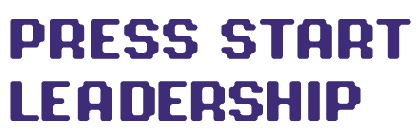Navigating Disagreements and Building Stronger Teams in the Video Game Industry
The video game industry, characterized by rapid technological advances, tight deadlines, and passionate team members, is no stranger to conflicts. With millions of players waiting eagerly for the next best game, the pressure to deliver is intense. In such high-stress environments, disagreements are not just probable—they are inevitable. For industry leaders, effective conflict resolution becomes crucial not just for the success of a project, but also for fostering a culture of collaboration and respect.
Understanding the Nature of Conflicts in the Gaming Industry
Before diving into conflict resolution, it’s essential to understand the unique nature of disagreements in the video game industry:
1. Creative Differences: Video games are, at their core, a blend of art and technology. Differences in vision between designers, writers, developers, and other stakeholders can lead to conflicts.
2. Technical Challenges: With new gaming platforms and technologies emerging continuously, developers often face technical challenges that can lead to disagreements on solutions.
3. Tight Deadlines: The urgency to release games, coupled with market pressures, can lead to stressful environments, escalating minor disagreements into major conflicts.
4. Diverse Teams: The gaming industry attracts talent globally. Differences in culture, communication styles, and work ethics can sometimes result in misunderstandings.
The Importance of Effective Conflict Resolution
For leaders in the video game industry, conflict resolution is not just about addressing disagreements; it’s about shaping the future of their projects and teams.
1. Maintaining Team Morale: Persistent conflicts can lead to decreased motivation and enthusiasm among team members, impacting productivity and creativity.
2. Ensuring Project Timelines: Resolving conflicts promptly ensures that projects remain on track, avoiding delays that can be costly both financially and reputationally.
3. Fostering a Collaborative Culture: Leaders who handle conflicts constructively demonstrate the value of collaboration and understanding, setting the tone for the entire organization.
4. Attracting and Retaining Talent: The best minds in the industry seek workplaces where they feel respected and heard. Effective conflict resolution contributes to a positive work environment, attracting and retaining top talent.
Strategies for Conflict Resolution in the Gaming World
Armed with an understanding of conflicts and their implications, let’s delve into effective strategies that leaders can employ.
1. Open Communication: The foundation of any conflict resolution is open, transparent communication. Leaders should encourage team members to express their concerns without fear of retribution. Listening actively, without immediately jumping to solutions, can lead to better understanding and resolution.
2. Define Clear Roles and Responsibilities: Many conflicts arise from ambiguity in roles. Clearly delineating responsibilities ensures everyone knows their part, reducing overlaps and potential disagreements.
3. Seek Mediation: In instances where conflicts escalate, involving a neutral third party can be beneficial. This mediator, whether an HR representative or an external consultant, can provide an unbiased perspective and facilitate constructive dialogue.
4. Foster a Culture of Respect: Promoting mutual respect, regardless of hierarchy, can prevent many conflicts. Recognizing and valuing the contributions of every team member, irrespective of their role, goes a long way in building a positive work culture.
5. Continuous Training: Regular workshops on communication, team-building, and conflict resolution can equip team members with the tools they need to navigate disagreements effectively.
6. Prioritize Team Well-being: Stress is a significant contributor to conflicts. Ensuring that team members have a healthy work-life balance, access to mental health resources, and regular breaks can reduce the likelihood of disagreements.
Navigating Common Conflict Scenarios
To bring these strategies to life, let’s explore how leaders can address some typical conflict scenarios in the video game industry.
1. Creative Differences: When the art team envisions a character design differently from the story team, it can lead to conflicts. Here, leaders can organize collaborative brainstorming sessions where both teams present their perspectives. By understanding the reasons behind each vision, a middle ground, often superior to the initial ideas, can be found.
2. Technical Disagreements: Suppose the development team is divided over two potential game engines. Instead of pushing a top-down decision, leaders can encourage prototyping on both engines, followed by evaluations based on performance, scalability, and compatibility.
3. Cultural Misunderstandings: With global teams, misunderstandings due to cultural differences are common. Leaders can organize intercultural training sessions, fostering awareness and appreciation of diverse cultures. Celebrating various cultural festivals or recognizing international holidays can also build team unity.
Conflict Prevention: A Proactive Approach
While resolving conflicts is crucial, leaders can take a proactive approach to minimize potential disagreements. Here’s how:
1. Setting Expectations Early: At the onset of a project, discussing goals, visions, and processes ensures everyone starts on the same page. This clarity reduces potential points of contention.
2. Regular Check-ins: Routine team meetings, one-on-one sessions, and project status updates can help identify budding issues before they escalate.
3. Team Bonding Activities: Organizing team-building activities can foster camaraderie and mutual understanding among team members. When individuals know each other beyond their professional roles, they’re more likely to collaborate constructively.
4. Feedback Mechanisms: Implementing anonymous feedback systems can provide insights into latent issues, allowing leaders to address concerns proactively.
Personal Attributes of Leaders in Conflict Resolution
The success of conflict resolution strategies often hinges on the personal attributes of the leaders implementing them. Here’s what effective leaders in the gaming industry often exhibit:
1. Empathy: Understanding and genuinely caring about team members’ perspectives is foundational to resolving disagreements.
2. Patience: Conflicts don’t resolve overnight. Leaders need the patience to navigate the complexities and nuances of each disagreement.
3. Assertiveness: While understanding is essential, leaders must also be assertive when making final decisions to ensure projects stay on track.
4. Strong Communication Skills: The ability to convey thoughts clearly, without ambiguity, is vital in ensuring everyone understands the resolution.
5. Open-mindedness: Leaders should be willing to change their stance when presented with compelling arguments or new information.
Post-Conflict: Building Stronger Bonds
How leaders handle the aftermath of a conflict can shape the team’s future dynamics. Here’s what can be done:
1. Reflect on the Cause: Understand the root cause of the conflict to prevent recurrence. This might involve revisiting processes, roles, or communication channels.
2. Rebuild Trust: Conflicts can strain relationships. Engage in trust-building activities, acknowledge everyone’s contributions, and ensure that there’s no lingering animosity.
3. Document Learnings: Every conflict offers a learning opportunity. Documenting these can serve as a guide for future situations and also for new team members.
4. Celebrate Resolutions: Recognize and celebrate the team’s ability to navigate disagreements and emerge stronger. This positive reinforcement can change the team’s perception of conflicts from being detrimental to growth opportunities.
Challenges in Implementing Conflict Resolution Strategies
While the strategies outlined are ideal, the real world presents challenges in their implementation:
1. Hierarchical Barriers: In some organizations, strict hierarchies can hinder open communication. Leaders must work to flatten these structures, promoting open dialogue.
2. Resource Constraints: Investing in training, team-building activities, or hiring mediators requires resources. Leaders need to advocate for these, emphasizing their long-term benefits.
3. Resistance to Change: Not everyone is open to new strategies or changes in processes. Leaders should approach such individuals empathetically, understanding their concerns, and showcasing the benefits of change.
Final Thoughts
The video game industry, with its blend of creativity and technology, is ripe for conflicts. But these disagreements, when navigated effectively, can lead to stronger bonds, innovative solutions, and a harmonious work environment. As leaders in this dynamic industry, mastering conflict resolution is not just a skill—it’s a responsibility. It’s about ensuring that every voice is heard, every perspective valued, and every team member treated with respect. In doing so, leaders don’t just resolve conflicts; they sculpt the very culture of their organizations, turning challenges into opportunities for growth and innovation.
Thank you for reading this article to the end. I hope it has been informative and helpful. If you’d like to learn more about the topics we covered, I invite you to check out my podcast and my YouTube channel where I delve into these subjects in more depth.
Additionally, I would love to stay in touch and keep you updated on all the latest developments and insights in the world of leadership. That’s why I encourage you to sign up for my newsletter. Not only will you receive regular updates, but as a thank you for joining, I will also send you my free eBook, “5 Heroic Leadership Skills.” This eBook is packed with practical tips and strategies that will help you take your leadership skills to the next level.
So don’t wait! Sign up for my newsletter today and start your journey towards becoming a more effective and inspiring leader. I can’t wait to hear from you.


